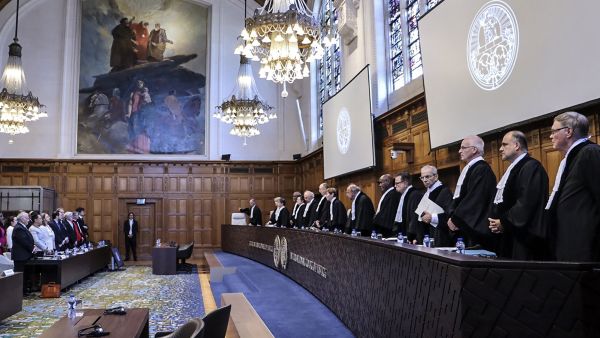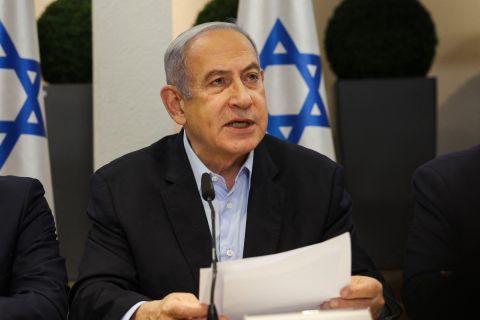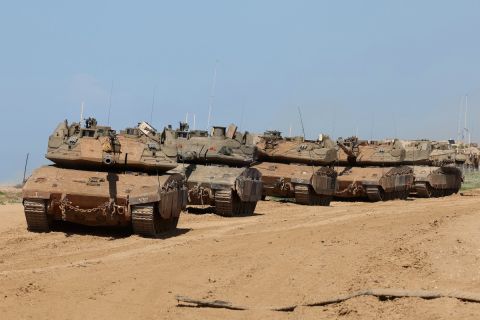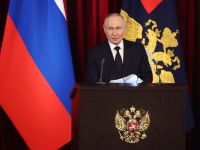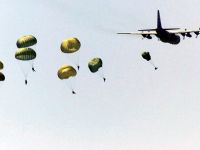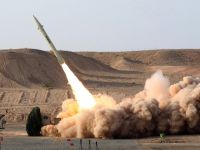ALBAWABA - Starting on Monday, the International Court of Justice (ICJ) will start hearing sessions on the legal consequences of Israel's occupation of Palestinian territories since 1967, with a record 52 countries likely to provide evidence.
United States, Russia, and China along with several other countries will be addressing judges in a week-long session at the Peace Palace in The Hague, Netherlands.
Despite the ICJ resolutions not being legally binding, the opinions coming out at the end of the case brought forward by South Africa will have its toll on Israel as international pressure mounts up over the brutal Israeli aggression on Gaza since October 7.
The International Court of Justice concluded in that case in January that Israel must do all in its power to avert genocide and allow humanitarian supplies into Gaza, but it did not mandate a ceasefire.
On Friday, it rejected South Africa's attempt to impose extra sanctions on Israel while emphasizing the importance of fully implementing the verdict.
The General Assembly has asked the ICJ to address two matters. First, the court should consider the legal implications of what the UN refers to as "Israel's ongoing violation of the Palestinian people's right to self-determination".
The International Court of Justice has also been urged to investigate the impact of what it describes as Israel's "adoption of related discriminatory legislation and measures".
Second, the ICJ should advise on how Israel's activities "affect the legal status of the occupation" and what the implications are for the UN and other nations.
The court will rule "urgently" on the case, most likely by the end of the year.
The International Court of Justice decides on state disputes, and its decisions are binding, although it has limited enforcement powers.
South Africa's case against Israel in the ICJ
South Africa announced prosecuting Israel over genocidal doing in Gaza under the International Court of Justice (ICJ), gaining endorsement from multiple countries across the world.
The first public hearings at the Peace Palace in the Hague took place on the 11 and 12 of January. South Africa argued that Israel violated its obligations under the Genocide Convention in its application to the ICJ.
They further argued that "acts and omissions by Israel … are genocidal in character, as they are committed with the requisite specific intent … to destroy Palestinians in Gaza".
South Africa provided the ICJ with extensive evidence of genocidal intent in various public statements by Israeli Prime Minister Benjamin Netanyahu, President Isaac Herzog, and other high-ranking officials in an 84-page complaint.
Al-Aqsa Flood operation against Israel
Hamas military group announced on Oct. 7 a military operation called "Al-Aqsa Flood" against Israel which is the biggest offensive in decades.
Palestinian fighters “infiltrated” Israel from the Gaza Strip and captured military bases and took hostages as photos and videos went viral online showing Hamas fighters on vehicles inside Israel and others paragliding into occupation territory.
In response, Israeli armed forces announced targeting Hamas positions inside the Gaza Strip. Thousands were killed, and dozens of thousands of others were injured in the Israeli attacks on the Gaza Strip.
The latest statistics by the Ministry of Health in Gaza revealed that the death toll from Israeli brutal pounding on the Gaza Strip since October 7 has soared to 28,858 people, with more than 68,677 injuries.
Since then, approximately 85% of Gazans have been displaced, all of whom are suffering from severe food insecurity, and the healthcare system has collapsed. Hundreds of thousands of people lack shelter, and aid trucks are entering the area at a lower rate than before the conflict began.


